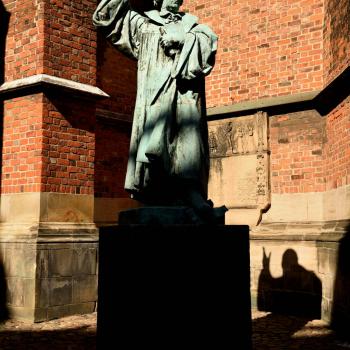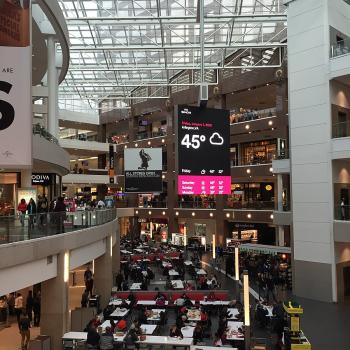“When Bail Is Out of Defendant’s Reach, Other Costs Mount”:
By the time Mr. Torrence was released from jail, for instance, his imprisonment had taken a toll on the family he shares with his girlfriend, Markeisha Brown. Since Mr. Torrence normally takes care of Ms. Brown’s two sons, she was forced, she said, to stop working and drop out of cosmetology school, losing the $18,000 she had borrowed on a student loan. The couple are still trying to come up with June’s rent.
more (his case was dropped for lack of evidence, in case you’re curious–also HEY toward the bottom of this article a bail-bonds industry spokesman makes a 100% correct point, that non-bail instruments like ankle monitors can also become tools for criminalizing poverty, although why he thinks that makes money bail a good idea is beyond me) (oof, the story of the Wheelers at the end of this piece is awful)
“The Money Trail of Baltimore’s White Supremacist Politics”:
…When running a candidate for a citywide race years ago — a nice person, likeable and with a great civil rights background — I went to a number of fundraising meetings where we met with major players at Venable LLP, the city’s foremost corporate legal firm, T. Rowe Price, its foremost global investment management firm, and Whiting-Turner, its foremost construction firm, as well as the Fraternal Order of Police (FOP). These meetings went far better than I had any right to expect, and unfortunately it was in the FOP meeting that I discovered why: My candidate had been pledging to support a policy of martial law for the poorest black neighborhoods in order to secure support.
It’s hard to call it specifically racist, since the candidate was black. When I requested an explanation, the candidate was completely willing to give one: it was a policy they were being asked to endorse from which they did not perceive danger, one that secured money and support from those powers that were needed in order to be elected, and it had proven a successful strategy for two popular black mayors outside of Baltimore. And it worked. I resigned from the campaign that day, but the candidate did secure money from the big firms and the endorsement of the police.
It seems that other city officials made a similar pledge. You may have recognized this policy of martial law, in not just the curfew and use of National Guard troops and surveillance aircraft in the aftermath of the riots, but in the actual police strategy that sparked the riots themselves and the long-standing Bush-administration-supported state-city partnership to spy on protesters. It should be noted that the Baltimore Sun cited T. Rowe Price and Venable as the two firms that publicly declared early closures on April 27, on the advice of the Police, just hours before the outbreak of the riots.
more (also this gemlet: “But it must also be stated that these fundraising consultancy firms are wildly successful in progressive causes such as marriage equality and environmental conservation.” Gay marriage: It’s like hand sanitizer for your soul.)
“There’s No Evidence of a ‘New Nationwide Crime Wave'”:
[quoting Franklin Zimring:] Is there a nationwide crime wave? On current evidence, probably not, and a careful analysis of official statistics in New York and Los Angeles provides reason for reassurance rather than alarm.
Zimring starts with New York.
Let’s start with the uptick in violence in New York City. The most recent official crime statistics indicate that so far in 2015, the city has experienced significant declines from 2014’s ultra-low levels in burglary, robbery and larceny. At the same time, total homicides for the first five months of the year at 135 are higher than in 2014 — but quite close to the pace of 2013 and around 30% lower than in 2010.
At their current rate, killings in New York City would end 2015 as either the third or fourth lowest year in the city’s modern history. …
So what is causing the surge of murders in Baltimore and St. Louis? Perhaps Mac Donald is right that in those cities in particular, anger against police brutality is spilling over into violence. I haven’t seen convincing evidence to prove or disprove the point. But here’s another possibility: In the meticulously researched book American Homicide, historian and sociologist Randolph Roth argues that historically, that two of the factors that cause homicides to soar in American cities are a sense of a loss of government legitimacy, and a loss of a feeling of belonging among outcast or historically oppressed groups. That would certainly seem to be the case in both St. Louis and Baltimore. These are difficult things to quantify, but so is Mac Donald’s insinuation that criticizing cops for alleged brutality makes people want to murder them.
“Memories of the Jefferson Park Pool”: the past isn’t dead–it isn’t even past.
It was a scorching hot day in 1961 and Jefferson Park Pool was packed to the gills when Walter Fitch got a call from his boss.
“He said ‘Go let the water out of the pool,’ and I said, ‘What?’” Fitch said. “I said ‘How you going to let the water out of the pool when it’s 98 degrees out? The pool is so thick [with people] you can only dip your foot in.’”
Fitch, a part-time Parks & Rec staffer, followed “rules and regulations” and dutifully emptied the pool to everyone’s shock.
But it wasn’t until later that he found out why. In response to pressure to integrate its public pools, the city decided to shut down all the facilities, including Jefferson Park, the lone pool for blacks.
“Jail for Missed Days at School? The Madness of Truancy Laws”:
We’ve seen it happen again and again: libertarians are derided over some supposedly crazy or esoteric position, years pass, and eventually others start to see why our position made sense. It’s happened with asset forfeiture, with occupational licensure, with the Drug War, and soon, perhaps, with libertarians’ once-lonely critique of school truancy laws.
People, the Atlanta Journal-Constitution, and other outlets are reporting on the case of Julie Giles of Sylvania, Georgia, who was arrested and put in shackles after her son Sam, who has been on the honor roll and won a “Student of the Month” citation, had nine unexcused sick absences when only six are allowed. Washington Post columnist Petula Dvorak has reported on a 13-year-old straight-A piano prodigy charged with truancy in D.C. for taking ten days off to play on international concert stages, and another local mother charged with truancy because she took her son on an overseas trip for purposes of adopting his little brother. …
The criminal penalties, combined with the serious consequences that can follow non-payment of civil penalties, are now an important component of what has been called carceral liberalism: we’re finding ever more ways to menace you with imprisonment, but don’t worry, it’s for your own good. Yet jailing parents hardly seems a promising way to stabilize the lives of wavering students. And as Colorado state Sen. Chris Holbert, sponsor of a decriminalization bill, has said, “Sending kids to jail—juvenile detention—for nothing more than truancy just didn’t make sense. When a student is referred to juvenile detention, he or she is co-mingling with criminals—juveniles who’ve committed theft or assault or drug dealing.”
Fortunately, if belatedly, a reaction is under way.
And let’s end on this note: “North Carolina’s ‘Flip the Prison’ Initiative“:
…What to do with closed prisons? One non-profit organization in North Carolina–which has twelve of them–has an innovative solution that could be a springboard for other states to follow.
As part of GrowingChange.org‘s “Flip the Prison” initiative, the idea is to convert decrepit detention facilities in North Carolina–like one in Scotland county–into multi-use community centers, where educational and diversionary programs could shift youth from the court system, provide residential college internships for returning veterans and provide wellness education in areas of poor health.
Solitary confinement cells might become fish tanks for water-based agriculture projects, guard towers could be converted into rappel towers, and warden houses would become living spaces for veterans working on college degrees.















